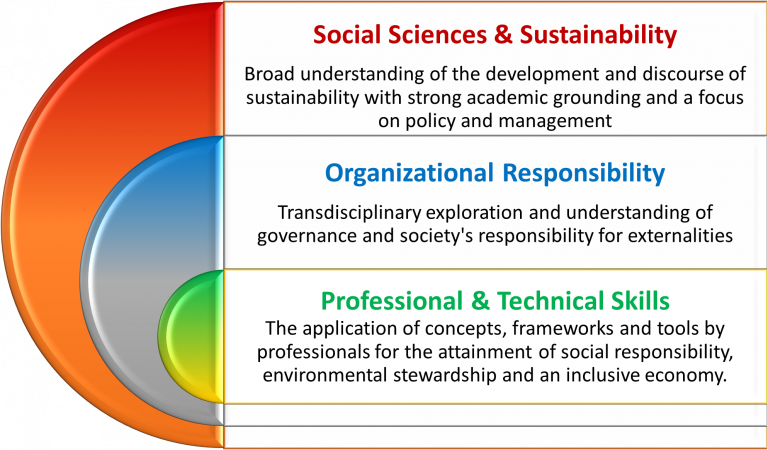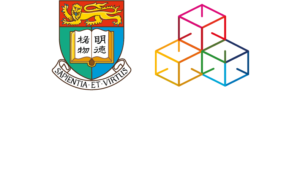Curriculum
Create your path to success
PROGRAMME COURSES
LEARNING OUTCOME
CAPSTONE PROJECTS
STUDY PLAN
PROGRAMME COURSES
Programme Introduction
This programme aims to equip students with the knowledge and skills required to understanding complex sustainability challenges, and managing sustainability issues in their daily work. Embodied in the aims and curriculum of the programme are the key vision and mission of the Centre, which emphasize the importance of cross-sector collaboration and collective action. Specifically, the programme focuses on building the capacity of actors in the public, business and social sectors to engage in dialogue and partnerships to develop innovative solutions to the challenges set out by the 17 UN SDGs.
Our Programme has been accredited by Institute of Environmental Management & Assessment and students are entitled to complimentary student membership to IEMA for the duration of the programme and on successful completion they qualify for GradIEMA. Graduate membership is a launchpad for future leaders within environment and sustainability and offers a range of benefits to support you throughout your career. This then provides a “fast track” opportunity to Practitioner Membership (PIEMA) following successful completion of the work-based assessment of competence.
In addition, the International Sustainable Business (ISB®) Qualification Program is now available for the graduates of the Programme. Starting with the latest intake of SLGP students enrolled in September 2023, graduates of SLGP will be conferred the ISB® Advisor (International Sustainable Business) designation by IASE, International Association for Sustainable Economy. Graduates will also find the content in the HKU SLGP useful in preparation for the higher-level board examination entitled ISB® Specialist designation by IASE.
Mode of Attendance
1-Year Full-Time
2-Year Part-Time
Class Schedule
On weekday evenings with occasional Saturdays
(Compulsory courses may offer a weekday day-time option for Full-Time students)
Medium of Instruction
English
Scholarship
The Centre for Civil Society and Governance Scholarship (CCSG Scholarship)
Established with the aim to recognise students who have attained outstanding academic performance in the taught masters’ programme and demonstrated commitment to apply sustainability knowledge into action.
- The Scholarship will be awarded from the academic year 2024-25
- The Scholarship will be known as “Centre for Civil Society and Governance Scholarship (CCSG Scholarship)”.
- A maximum of four scholarships will be awarded each academic year to Master of Social Sciences in Sustainability Leadership and Governance (MSocSc(SLG)) students on the basis of academic merit and performance at the scholarship interview.
- The Scholarship will be the value of half of the tuition fee of the MSocSc(SLG) programme.
- The Scholarship will be for one year.
- The Scholarship will be awarded upon the students’ completion of the programme.
- In the event of there being no suitable candidate in any year, no awards will be made.
Facebook Scholarship in Public Policy and Sustainability Leadership
“Facebook Scholarship in Public Policy and Sustainability Leadership” is launched under the HKU-Meta (formerly known as Facebook) Tech for Good Initiative to support outstanding students in the University’s Master of Public Administration (MPA) and Master of Social Sciences in the field of Sustainability Leadership and Governance (MSLG) programs.
Meta kindly pledged an initial donation of HK$350,000 per year from the academic years 2021-22 to 2023-24 to support outstanding young scholars to conduct research on public policy, governance and sustainability, with a focus on Artificial Intelligence (AI) ethics and Big Data governance.
All students of the following programmes will be considered for the scholarship:
- Master of Public Administration (MPA); and
- Master of Social Sciences in the field of Sustainability Leadership and Governance (MSocSc(SLG)).
The Selection Committee will take the below criteria into consideration for the award of the Scholarship:
- Academic merits (obtaining an average GPA of 3.6 or above);
- Performance at scholarship interview;
- Students who have satisfactorily completed any programme course and/or assignment with a focus on Big Data, Artificial Intelligence (AI), Augmented/Virtual Reality, (AR/VR), Smart City and Digital Governance will be given priority; and
- Any other considerations deemed relevant by the Selection Committee.
The Scholarship shall be of the value of HK$87,500 each, and it shall be used to support the awardee’s study and research in related fields, and may cover part of the costs of a study trip to Meta’s Headquarters in Silicon Valley in the United States.
2024-2025
2023-2024
ALL
COMPULSORY COURSES
ELECTIVE COURSES
CAPSTONE EXPERIENCE COURSE
ALL
COMPULSORY COURSES
ELECTIVE COURSES
CAPSTONE EXPERIENCE COURSE
LEARNING OUTCOMES
Sustainability extends into multiple fields of study and is reflected in the fast-growing job sector. When you study sustainability, such as in this programme, you will have the opportunity to explore many aspects of sustainable practices. The concepts and principles in sustainability extend into all industries such as food and beverages, healthcare, tourism, manufacturing, energy, transportation, and increasingly, the finance industry. Sonner or later, every job will require knowledge on sustainability, so why not start preparing now?
Pursuing a Masters degree always entail the pressure of choosing the right one for us. We all look for a career that will fulfil our professional needs and satisfy us personally. Another concern is whether our field of study will support us financially. Fortunately, sustainability degrees are in much higher demand now. As the job market for sustainability professionals are growing increasingly, the SLGP recognizes the need to complement this market demand while equipping potential change agents with the knowledge and skillset needed in our changing environment.
Sometimes our career choices lead us to an unmotivated work life and a lack of purpose. Often when people do not feel that they are doing something meaningful, their job satisfaction deteriorates drastically as a result. An advantage of studying in the field of sustainability is the fact that it is an impactful career choice. There are a lot of things about this field that will make you feel like you are making a difference, doing something meaningful and giving back. The emotional reward comes from the involvement in social and environmental issues, and the financial one comes from the fast-growing job market.
There are businesses that have adopted sustainability into their operations and there are those whose entire activity is related to sustainability, and as a result the related functions are being promoted to higher levels of management. Increasingly, we see companies requiring their C-suite level executives to have an education related to sustainability, or at least have some level of experience in the field.
Vision
We believe in an education where students will grow into professionals who listen empathetically, know the power of open dialogue, understand and are able to facilitate collaboration towards a fair, just and environmentally sustainable society, through a high level of academic achievement that bridges with practice.
Mission
We will fuel the fire of passion to change our world for the better by acquiring an understanding that promotes positive action, skills and commitment to discuss hard issues and solve tough problems cooperatively. By providing an enabling educational environment where student learners will flourish and grow toward their career goals, while developing the needed leadership acumen for the development of social equality, eco-justice and principles of an inclusive economy.
Values
The programme is shaped by the values and principles embodied in the idea of sustainability. These values include equal access, respect for diversity, community mindedness, cultural sensitivity and ethical awareness through an inclusive and participatory decision-making process. Our instructors and students will be guided by the principles of respect for varying perspectives, high standards of integrity, fairness, and above all striving to live in harmony with the planetary systems and each other.
1) will have understanding about the tools and methodologies that companies can integrate to improve their own environmental performance and how to contribute to global challenges associated with pollution, energy, natural resource management and climate change;
2) will recognise how the private sector can contribute to dealing with environmental and social challenges in a way that simultaneously enhances the competitiveness of businesses and local economies;
3) will have professional knowledge and competencies for taking a role in a business to deliver effective solutions to environmental and social challenges and take on a leadership role;
4) should be able to become reflective leaders with the ability to critically examine issues and problems facing businesses and other organisations that are committed to achieving to sustainable development;
5) should be able to integrate and synthesise knowledge and professional skills for problem-solving.
CAPSTONE PROJECTS
Examples of previous capstone project:
COURSE STRUCTURE
The courses offer a variety of ways to gain trans disciplinary learning while also offering a categorisation of courses into three key themes to facilitate course selection: Social Sciences & Sustainability, Organizational Responsibility and Professional and technical skills . Students can choose to focus on selecting electives from one or two themes or to select courses across all the key themes to gain a broader exposure to the field especially if you are new to the field or you are expanding upon your current knowledge. For a more tailored experience students accepted into the programme may have discussions with the Programme Director and relevant instructors.


